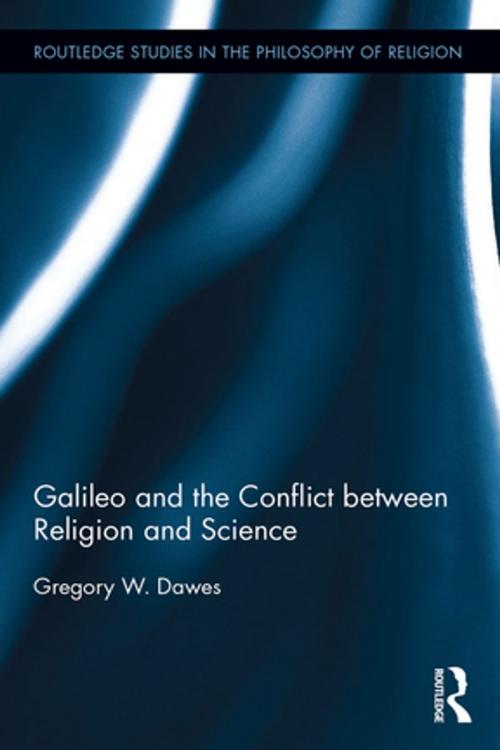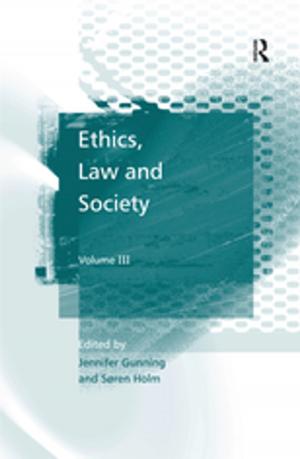Galileo and the Conflict between Religion and Science
Nonfiction, Religion & Spirituality, Philosophy, Religious| Author: | Gregory W. Dawes | ISBN: | 9781317268888 |
| Publisher: | Taylor and Francis | Publication: | January 22, 2016 |
| Imprint: | Routledge | Language: | English |
| Author: | Gregory W. Dawes |
| ISBN: | 9781317268888 |
| Publisher: | Taylor and Francis |
| Publication: | January 22, 2016 |
| Imprint: | Routledge |
| Language: | English |
For more than 30 years, historians have rejected what they call the ‘warfare thesis’ – the idea that there is an inevitable conflict between religion and science – insisting that scientists and believers can live in harmony. This book disagrees. Taking as its starting point the most famous of all such conflicts, the Galileo affair, it argues that religious and scientific communities exhibit very different attitudes to knowledge. Scripturally based religions not only claim a source of knowledge distinct from human reason. They are also bound by tradition, insist upon the certainty of their beliefs, and are resistant to radical criticism in ways in which the sciences are not. If traditionally minded believers perceive a clash between what their faith tells them and the findings of modern science, they may well do what the Church authorities did in Galileo’s time. They may attempt to close down the science, insisting that the authority of God’s word trumps that of any ‘merely human’ knowledge. Those of us who value science must take care to ensure this does not happen.
For more than 30 years, historians have rejected what they call the ‘warfare thesis’ – the idea that there is an inevitable conflict between religion and science – insisting that scientists and believers can live in harmony. This book disagrees. Taking as its starting point the most famous of all such conflicts, the Galileo affair, it argues that religious and scientific communities exhibit very different attitudes to knowledge. Scripturally based religions not only claim a source of knowledge distinct from human reason. They are also bound by tradition, insist upon the certainty of their beliefs, and are resistant to radical criticism in ways in which the sciences are not. If traditionally minded believers perceive a clash between what their faith tells them and the findings of modern science, they may well do what the Church authorities did in Galileo’s time. They may attempt to close down the science, insisting that the authority of God’s word trumps that of any ‘merely human’ knowledge. Those of us who value science must take care to ensure this does not happen.















